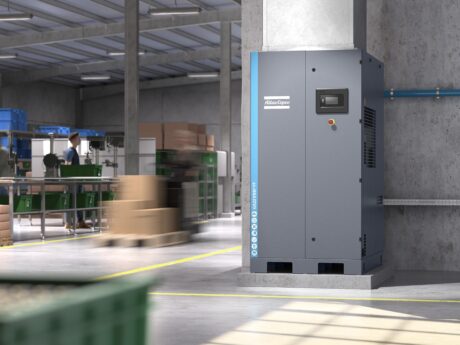Starting in 2022, science will guide Atlas Copco in setting environmental sustainability goals
The climate emergency is here, and many companies are moving to contribute to the common goal, defined in the Paris Agreement, of limiting the increase in global warming to 1.5 ° C compared to pre-industrial levels. Among these Atlas Copco, a Swedish multinational, whose emission reduction targets, starting from this year, will be validated by the Science Based Target initiative (SBTi), an initiative created by CDP (the United Nations Global Compact, by WRI (World Resources Institute) and the WWF (World Wide Fund for Nature) with the aim of guiding companies in setting goals with a validated scientific basis.

Atlas Copco has for a long time worked to offer the most energy-efficient products and solutions. In the company’s operations, there is a focus on buying renewable electricity, installing solar panels, implementing energy conservation measures, logistics planning improvements as well as switching to more environmentally friendly transport. This has resulted in a 28% reduction of CO2 emissions from the energy consumption in operations and transport of goods in relation to cost of sales and compared to a 2018 baseline.
The transition towards “science-based” objectives
The transition to “science-based” objectives is an important indication of the commitment to sustainability: these new targets involve the entire value chain with a holistic view of the impact of companies on the environment. According to the setting defined by the Science Based Target initiative three different scopes are identified:
- scope1 focuses on the direct climate impact a company has through its own operations. It can be, as an example, emissions generated by company vehicles or during industrial processes,
- scope 2 focuses on indirect emissions coming from the energy needed to power operations,
- scope 3 focuses on indirect emissions in up and downstream activities, outside of company operations. It can be emissions coming from business travel, purchased material and components, transportation, leased assets etc. Scope 3 also covers emissions from sold products that are in use by customers.
Following an assessment which involved representatives from each business area, Atlas Copco has set the following “science-based” goals: reduction by 2030 of at least 46% of emissions due to internal activities and of at least 28% % of activities on the value chain. These targets, defined using 2019 as a baseline, are applied starting in 2022 and will be reviewed at least every five years to ensure they are still in line with the latest climate science and corporate ambitions.
Juan Manuel Tejera Martinez opinion

“The Atlas Copco Group has significantly increased climate ambitions by setting important environmental impact reduction targets for the entire value chain. However, it is important to underline our commitment to developing energy efficient solutions to enable our customers on the path towards sustainability. In fact, almost all the greenhouse gas emissions that we generate come from where our products are in use”, says Juan Manuel Tejera Martinez, General Manager Atlas Copco Italy – Compressors Division.
Read more: www.atlascopco.it/science-based-targets



